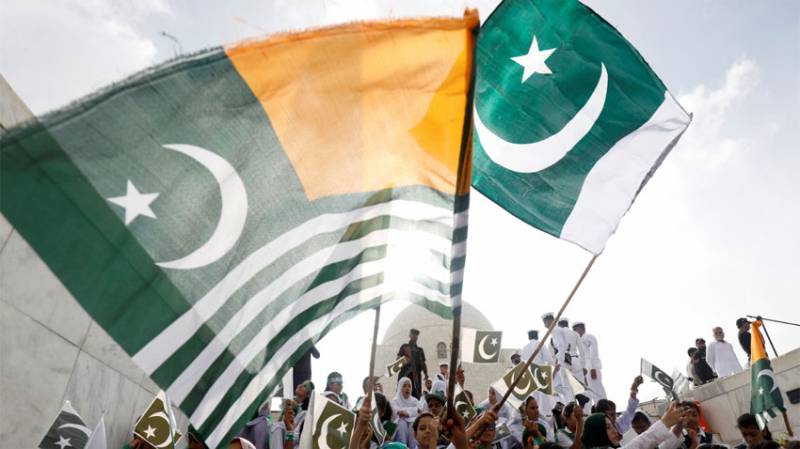Why the people of Indian Illegally Occupied Jammu & Kashmir (IIOJK) are denied justice? And how long the sufferings will last? These were the questions posed by Kashmiri leader Ghulam Nabi Fai at the ‘Kashmir Black Day’ event, organized by the Pakistan Embassy, Washington. These questions are the ground reality, an eye-opener for all those who perceive India as a democratic, secular republic. Since 1989, 96,000 Kashmiris have embraced martyrdom in IIOJK.
There are a number of half-windows and Kashmiri children are attacked, a large number have lost their eye sight due to pellet guns. In past few years, 13,000 Kashmiri boys have been detained and tortured by Indian security forces. These inhumane acts are the face of Rashtriya Swayamsevak Sangh (RSS) led India. 90,000 troops are deployed in occupied valley. The abrogation of Article 370 and 35-A is yet another move towards a forced solution for Jammu and Kashmir. These acts by India are a violation of the United Nations Security Council resolutions (August 13, 1948 and January 5, 1949) which give Kashmiris the right of self-determination.
India is also a signatory to the International Covenant on Civil and Political Rights (ICCPR). The Article 6 of ICCPR prohibits torture and other forms of cruel, inhumane and degrading treatment. Articles 4 and 7 explicitly ban torture even in times of national emergency.
In light of the international obligations, the situation in IIOJK is highly disturbing. The free reporting in IIOJK has also been banned. Indian government has issued a new order under which Journalists are to register themselves prior to media reporting. The Kashmir Press Club in Srinagar has been shut down. Quratulain Rehbar, a female Kashmiri journalist says the press club was one of the secure places where she worked. The restriction on media and press freedom have taken away the breathing space of Kashmiris. The arrests of Human Rights activists has further tightened the control over free speech. One such incident is the arrest of Khurram Parvez, a Kashmiri Human Rights activist. Parvez was arrested by the National Investigation Agency, Srinagar. Parvez is currently imprisoned in New Delhi. His only crime is criticism over the gross human rights abuses in IIOJK.
The international community, in particular the veto-wielding powers need to look at the Kashmir issue from a humanistic angle. Efforts should be directed towards human security. India, the prime instigator of violence in occupied valley is an ally of the US and is being regarded as an important player in the Indo-Pacific context. The West silence over the Indian atrocities in IIOJK carries a geopolitical bias. It is the strategic partnership with India which seems to have silenced the world players over Kashmir. It shows that humanity and the geopolitical interests go hand in hand. The US concern for the Uyghurs in Xinjiang is a case in point. The US has created laws like the ‘Uyghur Forced Labour Prevention Act,’ to sanction China. Contrarily, no step seems to be taken in support of Kashmiris in IIOJK.
The way the Kashmiris have dealt with the Indian atrocities proves that the zeal of freedom comes from within. Neither the Dogra rule could diminish the spirit of freedom nor can the Modi led fascist India undo the will of Kashmiri people. The people of Kashmir have defied India for decades. Their demand is an end to Indian illegal occupation. Pakistan supports the Kashmir cause. Pakistan has fought back militancy and is still trying to further decapitate the extremist tendencies. The South Asian region needs to be liberated from the clutches of extremism and the way out is to focus more towards human development / security. To accomplish this goal requires concerted efforts at regional level. First of all, there has to be a peaceful regional environment. The situation in IIOJK and along the Line of Control (LoC) needs to have peace. However, with an occupational mindset neither South Asian Association of Regional Cooperation (SAARC) will progress, nor the narrative of progress ever materialize and the net gain will be extremism.






